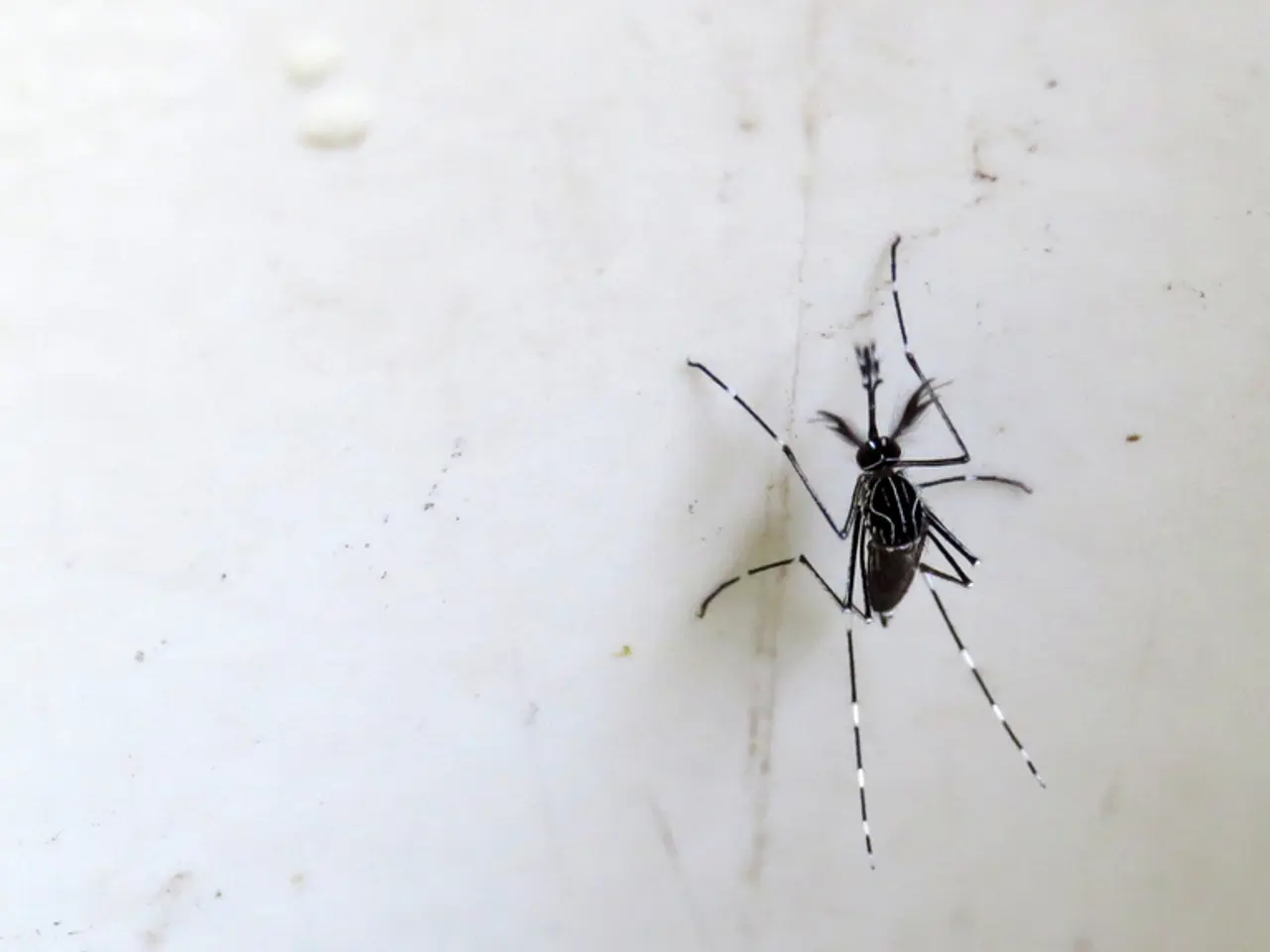Mosquitoes in Brantford Have Been Found Carrying West Nile Virus
West Nile Virus Detected in Brantford: Health Authority Issues Warning
Residents of Brantford, Ontario, have been advised to take precautions against mosquito bites after samples collected from a local neighborhood tested positive for the West Nile Virus (WNV). This marks the first lab-confirmed evidence of the virus in Brantford and Brant County this year.
The WNV, transmitted to humans through the bite of an infected mosquito, can cause a range of symptoms, from none to mild flu-like illness to severe neurological disease. Most people infected do not show symptoms, but in some cases, it can lead to severe illness.
Severe forms of the virus can cause encephalitis (brain inflammation) or meningitis (inflammation of brain/spinal cord membranes) with neurologic complications such as high fever, headache, neck stiffness, disorientation, stupor, coma, tremors, convulsions, muscle weakness, paralysis, numbness, vision loss, clumsiness, difficulty walking, brain fog, cognitive problems, and memory issues.
Recovery from severe illness can take weeks to months, and some effects may be permanent. Approximately 10% of those with neuroinvasive disease die from the infection. Long-term effects may include prolonged fatigue, muscle weakness, cognitive difficulties, memory problems, and permanent neurologic damage.
Older adults and immunocompromised persons are at the greatest risk for severe disease. Mild symptoms of WNV include fever, headache, body aches, mild rash, and swollen lymph glands. Serious symptoms can include a sudden severe headache, high fever, stiff neck, nausea or vomiting, difficulty swallowing, drowsiness, and confusion.
To prevent mosquito bites, the health unit advises residents to cover up with light-colored, long-sleeved shirts and pants, avoid being outdoors from early evening until morning, avoid shady, wooded areas, reduce mosquito breeding sites, and use an approved insect repellent such as one containing DEET.
The warm and wet weather conditions this summer have created an ideal environment for mosquito breeding. Seniors and people with underlying illnesses are urged to be cautious and take these precautions seriously.
There is currently no specific treatment or cure for WNV; care is supportive with rest, fluids, and symptom management. If you suspect you have been infected, seek medical attention immediately.
[1] Centers for Disease Control and Prevention. (2025). West Nile Virus. Retrieved from https://www.cdc.gov/westnile/index.html [2] Public Health Agency of Canada. (2025). West Nile Virus. Retrieved from https://www.canada.ca/en/public-health/services/diseases/west-nile-virus.html [4] Brant County Health Unit. (2025). West Nile Virus. Retrieved from https://www.brant.ca/en/health-and-wellness/diseases-and-conditions/west-nile-virus.aspx [5] Health Canada. (2025). West Nile Virus. Retrieved from https://www.canada.ca/en/health-canada/services/publications/diseases-conditions/west-nile-virus-factsheet.html
- Both the environment (warm and wet weather conditions) and health (seniors and people with underlying illnesses) play essential roles in the spread of West Nile Virus, as they create an ideal environment for mosquito breeding and place certain individuals at a higher risk for severe disease.
- It is crucial for residents of Brantford to prioritize health-and-wellness, focusing on both personal preventative measures (using approved insect repellent, avoiding mosquito breeding sites, and taking precautions against mosquito bites) and seeking immediate medical attention if they suspect they have been infected with West Nile Virus, as there is currently no cure for this medical-condition.




